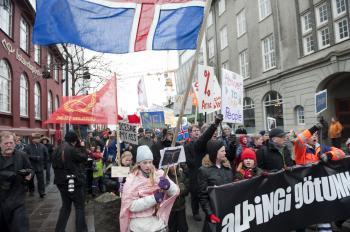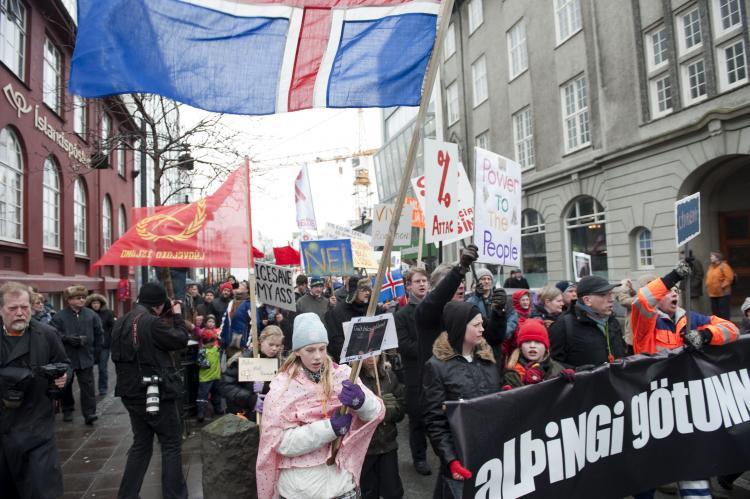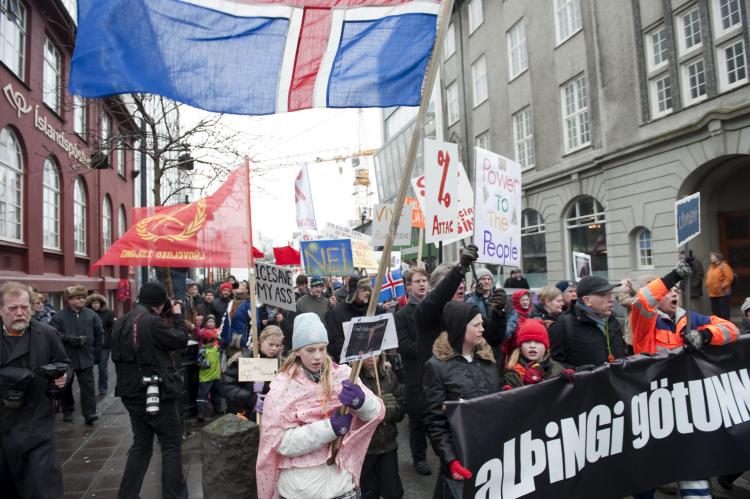Icelanders Soundly Reject Plan to Pay Back $5.3 billion Bank Debt
Icelanders vote NO in a referendum about whether to pay back money Dutch and British creditors lost

ICESAVE PAYBACK: People protest in the streets of Iceland's capital city, Reykjavik on March 6 before going to vote in a national referendum. The results showed 93.6 percent of Iceland's population voted 'No' on the proposal to pay Britain and the Netherlands. Halldor Kolbeins/AFP/Getty Images
|Updated:






